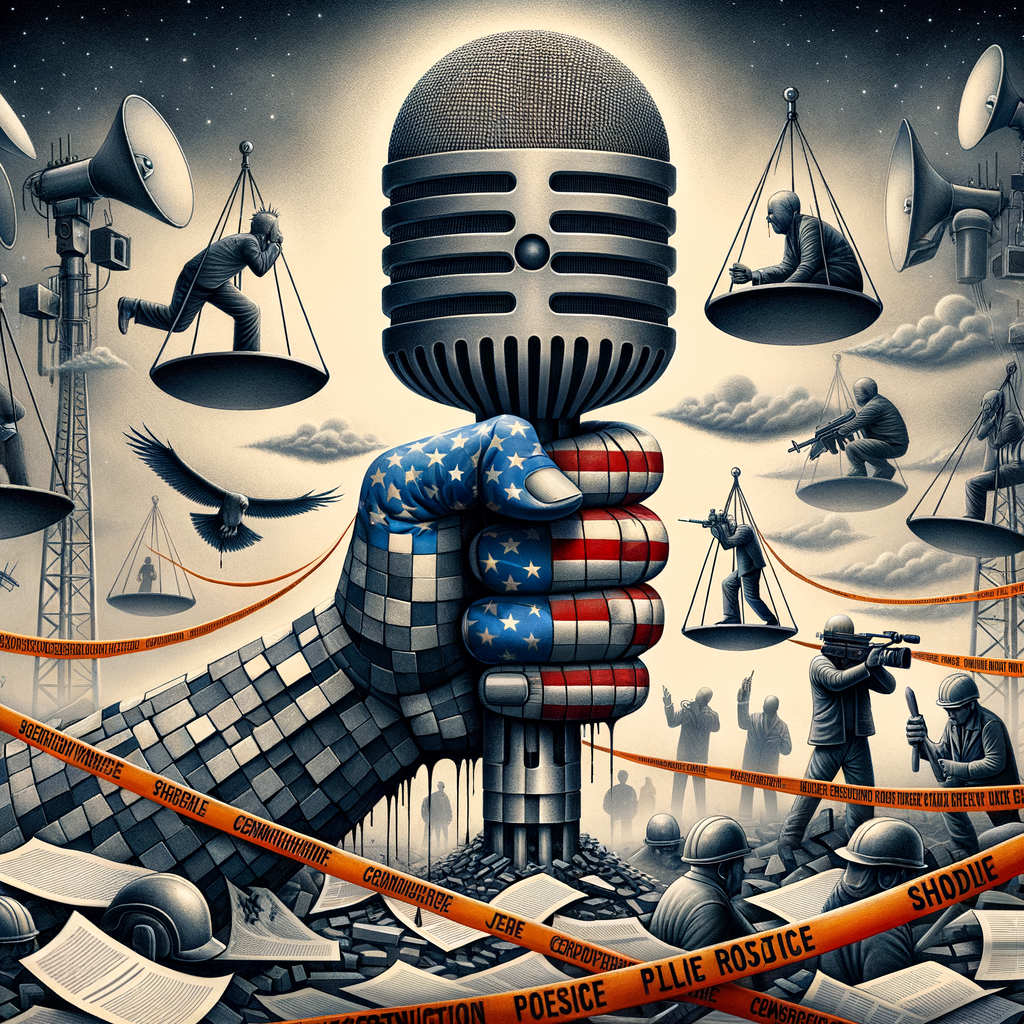Trump’s Proposal to Delicense Critical TV Networks Raises Alarming Questions on Media Freedom
President Donald Trump has reignited national discourse over freedom of the press by suggesting the delicensing of television networks that, in his view, spread “fake news” or express undue criticism towards him. This controversial statement came shortly after the Federal Communications Commission (FCC) was seen pressuring ABC over comedian and talk show host Jimmy Kimmel’s on-air remarks, intensifying concerns over political influence on regulatory authorities.
This article explores the implications of the proposed delicensing, how it conflicts with federal media regulation protocol, and the broader concerns it raises for government contractors, project managers, and public administrators working with or within the communications sector.
Understanding the Legal Framework for Broadcasting Licenses
The Role of the FCC
The FCC, as an independent U.S. government agency overseen by Congress, is tasked with regulating interstate and international communications by radio, television, wire, satellite, and cable. Its primary concern in licensure decisions includes ensuring distribution of the public airwaves in a manner that serves the “public interest, convenience, and necessity.”
However, these functions are not meant to be influenced by political or executive whims. Delicensing a network for the content it broadcasts would pose a direct threat to the First Amendment, which enshrines freedom of the press and shields it from government censorship.
License Renewal and Revocation Process
Broadcast licenses are generally granted for eight-year terms, and the renewal process involves demonstrating continued service to the public interest. Revocation is rare and requires due process, including hearings and documented violations of FCC rules. Criticism of political figures or the government does not constitute grounds for license revocation.
Implications for Project Managers and Contractors Engaged with Public Broadcasting
Compliance and Risk Management
For project managers in the media or public communication arenas, this controversy underscores the need to rigorously adhere to legal and ethical standards. Companies with federal or state broadcasting contracts must ensure proper documentation, compliance with content neutrality standards, and robust risk mitigation strategies in the face of potential politicization.
Contracting Impacts under Politicized Oversight
If regulatory entities are perceived as compromised by political influence, project deliverables and contract compliance standards can shift unpredictably. This undermines trust in fair contracting practices and creates a volatile business ecosystem for vendors and contractors, especially smaller firms less equipped to navigate politically charged environments.
Concerns Regarding Political Influence Over Independent Agencies
The ABC and Jimmy Kimmel Incident
The FCC’s recent pressure on ABC regarding Jimmy Kimmel’s sharp comedic criticism of President Trump is viewed by many analysts as a troubling sign. While officials stopped short of censorship, the involvement of a government regulator in editorial decisions raises constitutional red flags and sets a dangerous precedent for future speech suppression.
First Amendment Precedents
Supreme Court rulings, including *Red Lion Broadcasting Co. v. FCC*, have historically upheld both the duties and limits of broadcasters when licensed by the government. However, speech that is merely critical or satirical—even if offensive—is broadly protected. Delicensing due to criticism would almost certainly not survive legal scrutiny.
Best Practices for Contractors Navigating Federal Communications Projects
Stay Current with Regulatory Trends
Project managers in federal or state communications work must remain informed about evolving FCC policy directions and legal interpretations. Regular compliance audits and proactive stakeholder engagement are necessary to remain adaptable in changing regulatory climates.
Establish Clear Internal Review Protocols
Implementing internal editorial boards and legal reviews for content-related projects—particularly those streamed or broadcast with public funding—helps maintain compliance and demonstrates a proactive approach to preserving public interest standards.
Conclusion
President Trump’s suggestion to revoke TV network licenses for airing content critical of him—and the FCC’s unusual engagement with ABC over Jimmy Kimmel’s on-air satire—have sparked a fresh dialogue about the balance between regulatory oversight and editorial freedom. For federal and state contractors working in any media-adjacent promise, the stakes are high. Staying compliant, ethical, and responsive to shifts in policy is key to surviving and thriving in the public-sector arena.
Protecting freedom of expression isn’t just a journalistic concern; it’s a critical safeguard for transparent governance and fair contracting processes. As government agencies and vendors navigate the intersection of policy and media, reinforcing legal principles and best practices will support long-term trust, fairness, and professionalism across the board.
Stay tuned for more articles that examine how federal and state government actions impact public-sector project management and compliance in direct, actionable ways.

